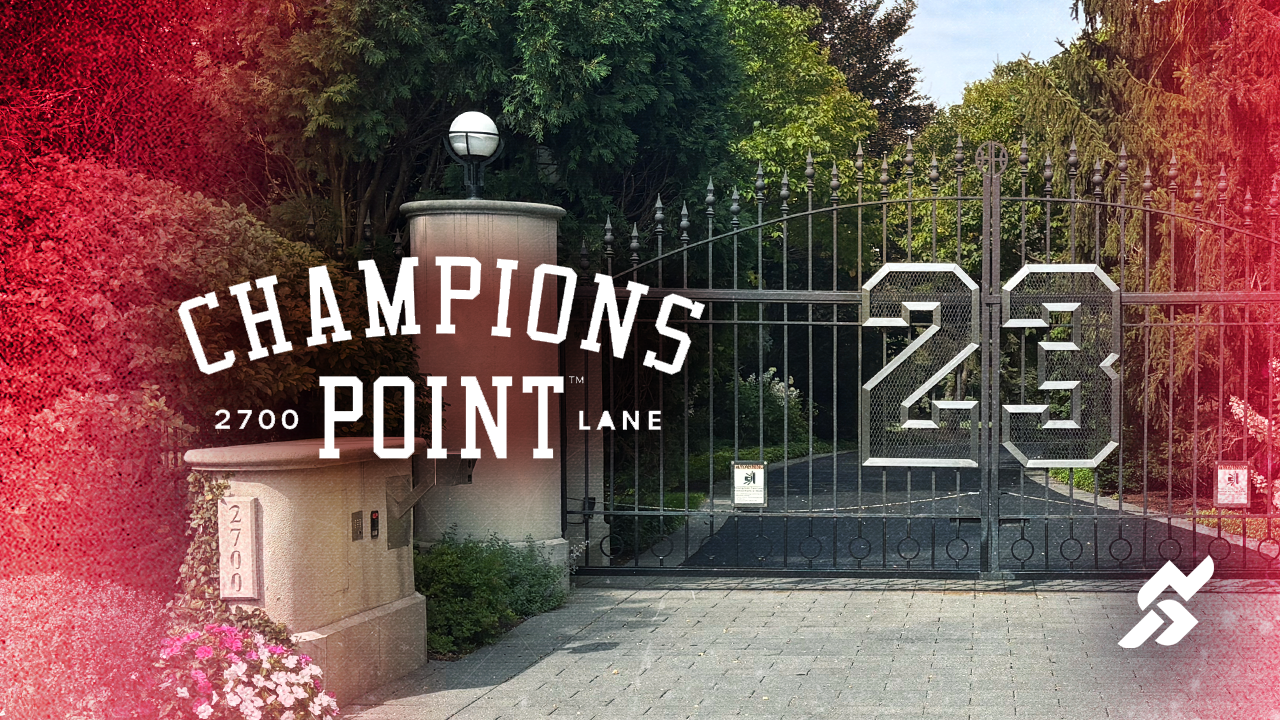
Highland Park, Ill.—Perhaps scooping up Michael Jordan’s notoriously unsellable Chicagoland mansion—even at a third of its original listing price—wasn’t such a slam-dunk real estate play after all.
This week, the City of Highland Park amended its zoning ordinance to prohibit timesharing in single-family homes, a move that comes in direct response to the controversial redevelopment plans of the property’s new owner.
In a 5-0 vote Monday (with one council member voting “present”), the Highland Park City Council approved the change to the municipal zoning code. The decision further complicates the efforts of real estate executive John Cooper to turn the 55,000-square-foot estate, which he purchased last year for $9.5 million, into a profit center.
“I have always and am still exploring a multitude of different uses for the property,” Cooper said Thursday in an email to Sportico. “The uses you’ve seen are not necessarily my intended long-term use.”
The property sat on the market for nearly 12 years—almost as long as MJ’s iconic run with the Chicago Bulls. First listed at $29 million in 2012, shortly after Jordan moved into a custom-built mansion in the exclusive Bear’s Club community in Jupiter, Fla., the Highland Park estate saw its asking price slashed in half by 2017.
Despite that, and even after renewed interest following the release of popular 2020 ESPN documentary series, The Last Dance, the home continued to sit vacant, with Jordan accruing more than $1.8 million in property taxes in the years since he moved out. (Not that he couldn’t afford it.)
Enter Cooper, who agreed to buy the property in September 2024 and closed the deal in December. Rebranding the home as “Champions Point,” Cooper unveiled his plans to operate it under a “co-ownership” model, in which a limited number of shares would be sold starting at $1 million each. In exchange, buyers would be given one week per year of exclusive access and the ability to host up to 24 guests during their stay.
The plan drew immediate skepticism: Critics questioned who would pay a seven-figure sum for just seven nights in a landlocked, suburban home of an NBA legend who retired a quarter-century ago.
To date, there have been no known takers. Since March, the property has also been available as a short-term rental—listed at $150,000 for a single month, or $89,000 per month for leases ranging from six to nine months, with an additional $50,000 security deposit required. The listing agent, Carrie McCormick, did not respond to an inquiry regarding the property’s rental activity.
While Cooper’s co-ownership model might be a stretch, it at least seemed legally viable. In a Jan. 13 email to other city officials—now part of the public record—Highland Park City Manager Ghida Neukirch advised other municipal staff that timeshares “are not prohibited or governed in our code.”
That loophole now appears closed. Cooper declined to directly comment on the city council’s vote or what it means for his plans.
Highland Park’s zoning rules already limit short-term rentals to 45 days per year and cap occupancy at 12 people, constraining Cooper’s ability to rent out Champions Point for events like weddings.
In a May 29 letter to the city’s Plan and Design Commission, Cooper’s attorney, Karl Camillucci, argued the then-proposed amendment “unfairly targets [Cooper’s] company, treats the company differently than similarly situated property owners, and jeopardizes the company’s substantial investment in the property.”
At a June public hearing of the city’s planning commission, Camillucci compared the amendment to “changing the rules in the middle of the game,” and entered his May 29 letter into the official record. He maintained, however, that regardless of what the city council ultimately decided, it would not supersede his client’s “vested rights” to proceed with the fractional ownership model—a position that could now become the subject of litigation. A representative from the city did not respond to a request for comment.
Lake County (Ill.) Recording Division documents show Cooper’s holding company, Champions Point LLC, secured a $6.175 million mortgage on the property from Pennsylvania-based lender Nextres, with the loan due to be paid in full by Jan. 1, 2026. In addition, Cooper will soon confront the property’s steep tax burden, which cost Jordan $137,907 last calendar year.
In addition to Champions Point, Cooper is a general principal at Han Capital, an Illinois-based real estate investment firm that focuses on self-storage, RV parks and manufactured houses.

